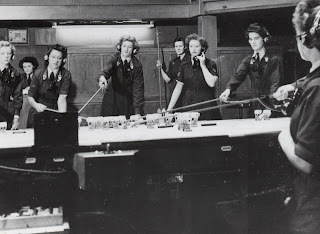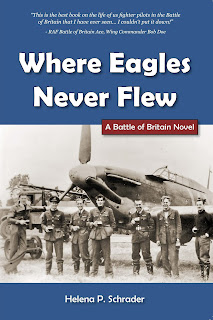To the extent that we consider the Battle of Britain pivotal to Allied success in WWII, the mastermind behind the RAF's success deserves far more credit and fame than he has been given to date. Air Chief Marshal Sir Hugh Dowding
ACM Dowding was not only the commanding officer of Fighter Command during the entire Battle of Britain, he was the man who had envisioned, created, shaped and molded Fighter Command into an instrument capable of withstanding the onslaught of the Luftwaffe in 1940. Dowding had been instrumental in Training Command in the inter-war years, and for six years headed the Supply and Research Office of the Air Ministry, in which capacity he was instrumental in fostering the development of radar. He was directly responsible for inviting private tenders for ‘the fastest machines they could build’ resulting in the design of the Hawker Hurricane and Supermarine Spitfire respectively. (Hurricanes are in the photo above; below the Spitfire.)
But technology and weapons are nearly worthless if they are improperly used or misused. Neither fighter nor radar would have saved England from invasion in 1940, if the institutional structures and fundamental strategy for the defense of Great Britain had not be evolved by Sir Hugh Dowding. In 1936, Dowding was appointed the first commander of the newly created Fighter Command. In this capacity, he ensured both the establishment of coastal radar stations (then known as RDF), and evolved the system of communications and control that linked that early warning system to the fighters that needed to respond.
The complex yet efficient system in which radar stations were connected by
telephone directly with Fighter Command HQ, where a Filter Room sifted through
and made sense of the plethora of reports and this information was converted
into comprehensible plots on a map, was Dowding’s invention. The segmentation
of British airspace into sectors, each protected by designated squadrons
controlled and directed from a Sector Airfield with its own Control Room, was
Dowding’s concept.
Dowding also demonstrated foresight in advocating the training of women on
radar and employing them as plotters and filterers. Women (WAAF) proved to be
extremely competent, reliable and unflappable.
Last but not least, Dowding must be given credit for withstanding the
immense political pressure to send more and more RAF fighter squadrons to
France as the German offensive systematically overwhelmed French defenses. Had
Dowding not vehemently insisted on the need to retain sufficient squadrons in
Britain to ensure the defense of the realm, too many British aircraft and
pilots might have been squandered in the lost Battle of France.
For all these reasons, Dowding deserves to be remembered as one of the greatest military leaders of the 20th century along with Air Vice Marshal Park, who commanded 11 Group during the Battle — but that is a different story and would require a second entry.
Dowding has only a cameo role in "Where Eagles Never Flew" which views the battle from the perspective of the frontline rather than HQ.






Much overlooked and under appreciated. Though he did get a little "weird" in later life.
ReplyDelete